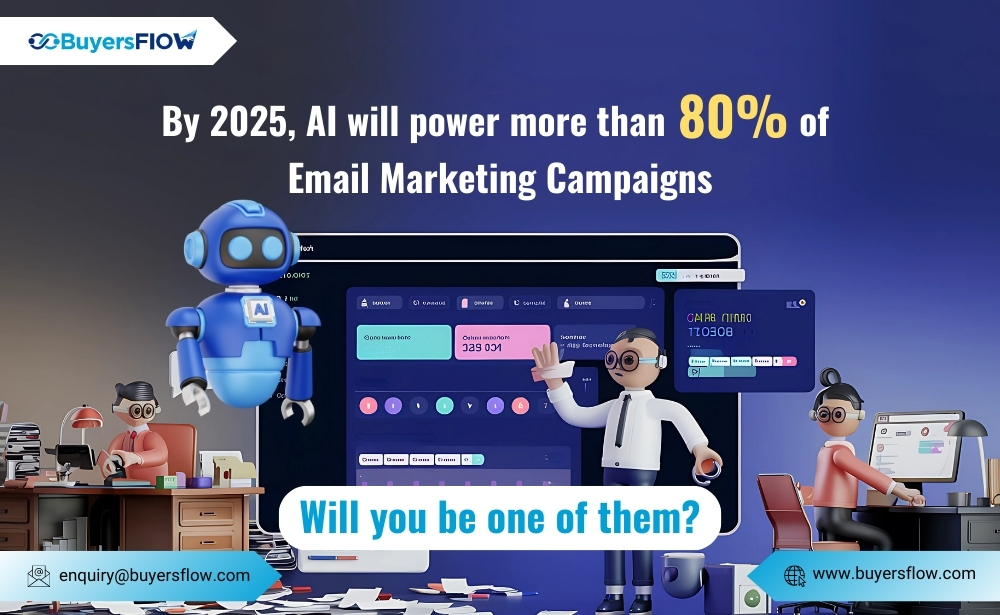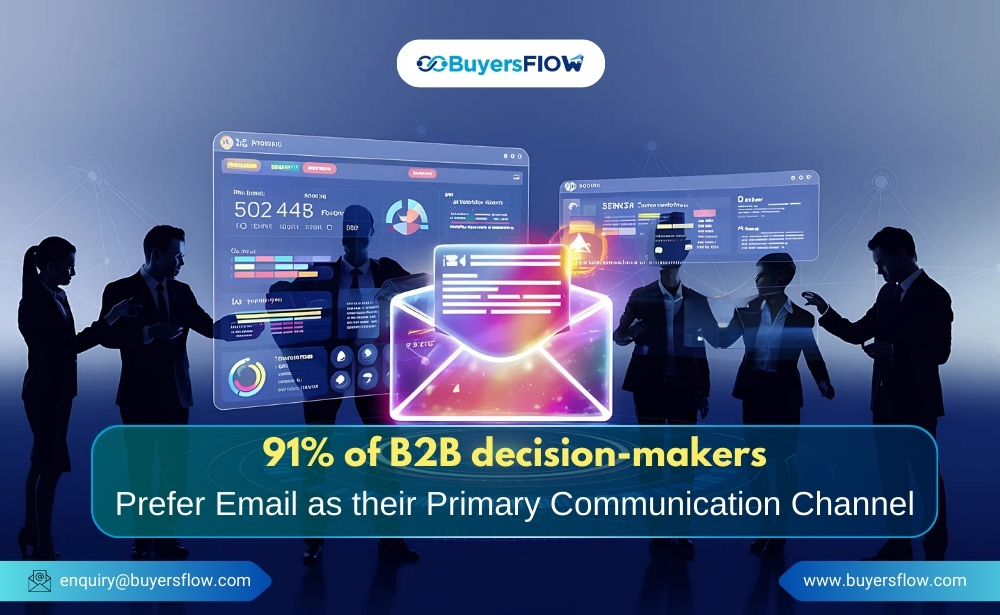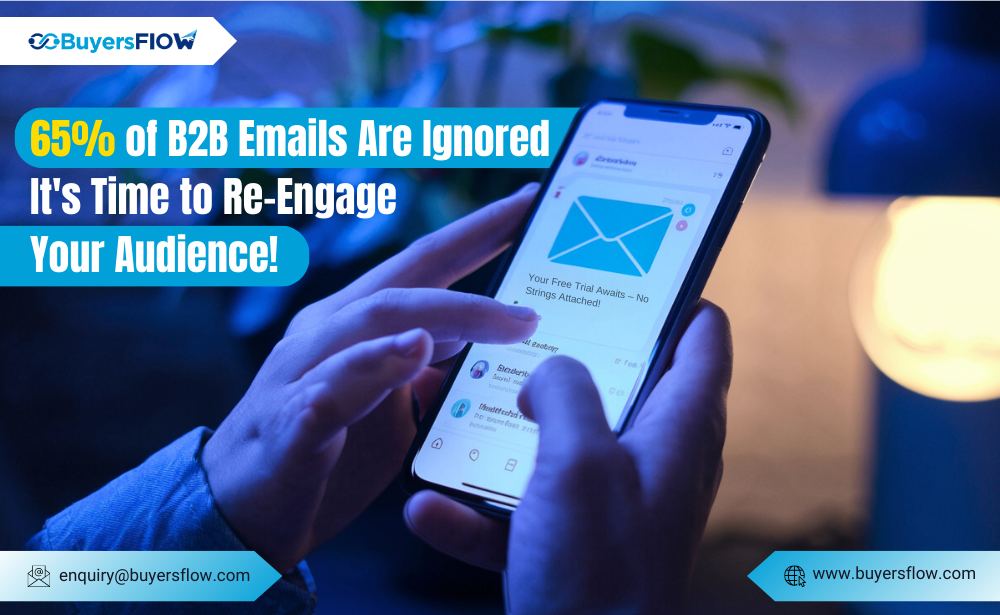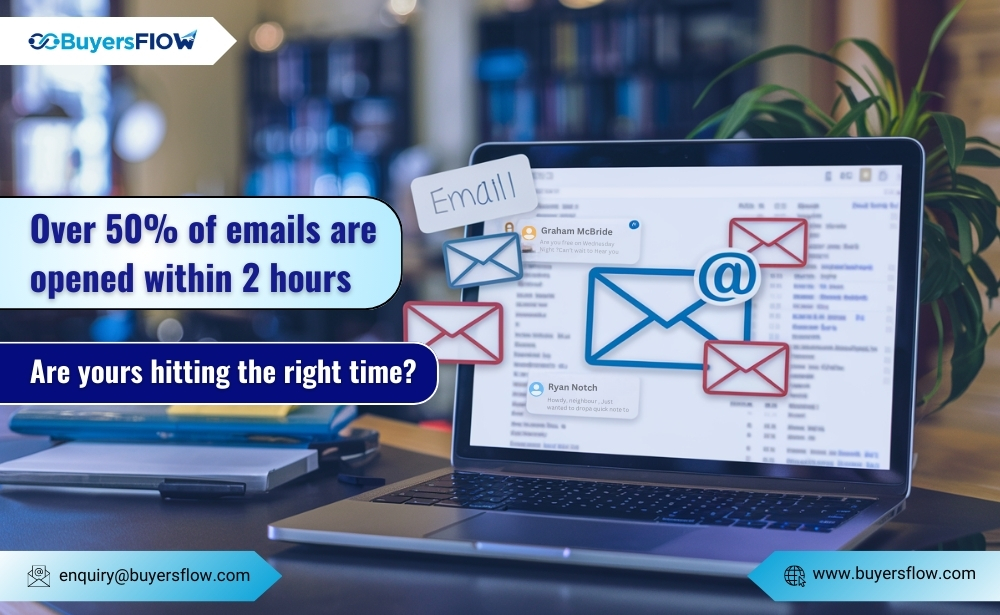As we approach 2025, artificial intelligence (AI) is set to reshape the landscape of email marketing. Businesses that are ready to adopt AI-powered tools and strategies will have a significant edge in the competitive digital market. AI promises to make email marketing more efficient, personalized, and data-driven, but it also introduces new challenges for marketers to manage. This article explores the key AI-driven trends shaping email marketing in 2025 and why businesses must embrace these changes to stay ahead.
Why AI Will Be Key to Email Marketing Success in 2025
AI is no longer a futuristic concept; it is a present-day tool that is transforming how businesses approach email marketing. As automation, personalization, and data analysis continue to dominate the industry, AI is playing a central role in improving these processes. By incorporating AI into email campaigns, businesses can:
- Scale their marketing efforts without sacrificing personalization or relevance.
- Optimize campaigns in real-time, leading to better customer engagement and higher conversion rates.
- Streamline operations by automating repetitive tasks and improving workflow efficiency.
In the next few years, AI will become essential for businesses looking to refine their email marketing strategies and achieve meaningful results.
Trend 1: Hyper-Personalization with AI
Personalization is not new to email marketing, but AI is taking it to a new level in 2025. Through AI-driven data analysis, businesses can gain deeper insights into customer preferences, behaviors, and engagement patterns. These insights allow for the creation of highly tailored email campaigns, including:
- Dynamic content: AI can create different versions of an email that cater to various segments of your audience, based on factors like browsing history or purchase behavior.
- Personalized product recommendations: By analyzing past purchases or browsing data, AI can suggest products that are more likely to appeal to the individual recipient.
- Custom subject lines and copy: AI can optimize email subject lines and body text to match the tone and preferences of the recipient, leading to higher open rates and engagement.
In 2025, email marketing will be centered around hyper-personalization, and businesses that can harness this power will see greater success in their campaigns.
Trend 2: AI-Driven Email Automation
Routine tasks such as email segmentation, sending, and reporting can be time-consuming for marketers. AI-driven email automation offers a solution by automating these repetitive tasks, allowing marketers to focus on strategy and creativity. Key benefits of automation include:
- Segmenting audiences more accurately: AI can segment email lists based on demographic, behavioral, and transactional data, ensuring that the right message reaches the right person at the right time.
- Optimized sending schedules: AI can determine the best time to send an email based on when recipients are most likely to engage with it, increasing the chances of higher open rates.
- Automated reporting and analysis: AI can generate real-time reports on campaign performance, allowing marketers to make data-backed adjustments quickly.
Automating these processes not only saves time but also ensures that emails are sent in a timely and relevant manner, increasing the likelihood of achieving desired outcomes.
Trend 3: Sentiment Analysis and Emotion-Based Targeting
AI is increasingly capable of understanding the emotional tone behind customer interactions, which is critical for crafting more impactful email content. By analyzing customer sentiment—through email responses, social media activity, or other touchpoints—AI can adjust email content to resonate emotionally with recipients. This includes:
- Emotion-based content: AI can tweak email copy to appeal to the emotional state of the recipient, such as offering empathy in response to customer complaints or excitement in response to a recent purchase.
- Tailored offers based on emotional triggers: AI can detect when a customer is likely to respond to specific types of offers, whether it’s a discount, an exclusive deal, or a limited-time offer.
By leveraging sentiment analysis, businesses can craft emails that speak to the heart of their customers, driving higher engagement and conversions.
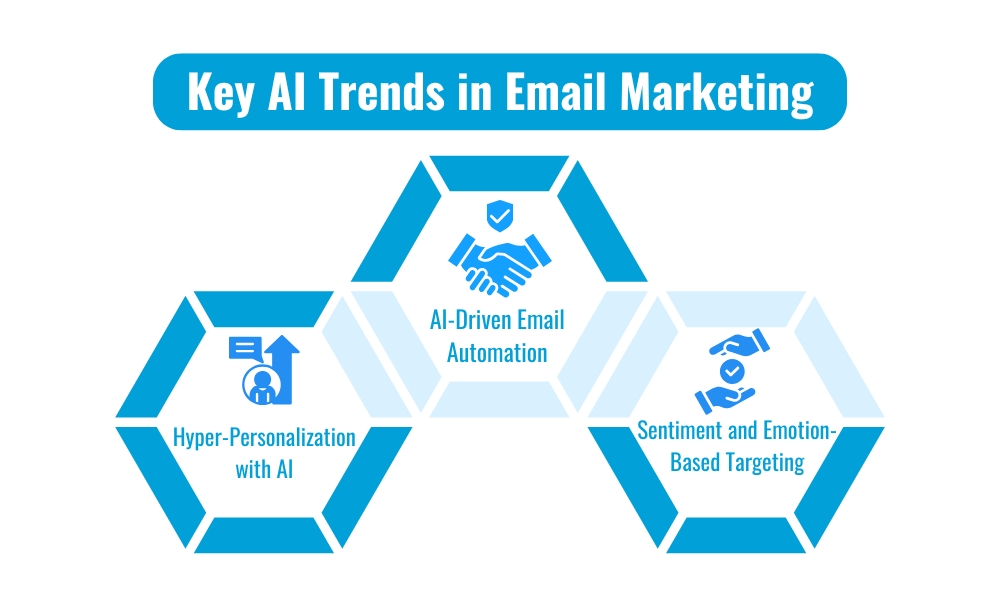
Trend 4: Real-Time Content Optimization
One of the most significant advantages of AI in email marketing is its ability to adapt content in real-time based on user behavior and context. With AI, email content can be dynamically adjusted to suit the recipient’s:
- Location: Offering region-specific promotions or information.
- Device: Optimizing emails for mobile or desktop, depending on how the recipient accesses the email.
- Behavioral triggers: Changing the message based on actions the recipient has taken, such as abandoning a cart or browsing certain products.
This level of real-time personalization can dramatically increase email open rates and engagement, as recipients are more likely to interact with content that is relevant to their immediate context.
Trend 5: AI-Enhanced Data Privacy and Compliance
As data privacy concerns continue to rise, especially with the implementation of GDPR and other privacy regulations, AI is playing a crucial role in helping businesses stay compliant. AI can help businesses manage and protect customer data by:
- Ensuring consent: AI can track and manage consent for email marketing activities, ensuring that all recipients have opted in to receive emails.
- Data encryption and security: AI can automatically encrypt sensitive customer data and protect it from unauthorized access, ensuring compliance with privacy laws.
- Monitoring opt-out requests: AI can quickly process opt-out or unsubscribe requests, ensuring that businesses remain compliant with regulations.
By integrating AI, businesses can ensure that their email marketing efforts remain compliant with changing privacy laws, building trust with their customers.
Trend 6: The Rise of Voice and AI-Powered Email
Voice assistants, like Alexa, Siri, and Google Assistant, are becoming increasingly integrated into daily life, and this is influencing email marketing as well. AI is enabling voice-activated email interactions, including:
- Voice search: AI can optimize email content for voice search, helping recipients find what they need quickly using voice commands.
- Voice-responsive emails: AI can create email content that responds to voice queries, making it easier for customers to engage with emails using voice commands.
With the growing influence of voice search, businesses need to adapt their email strategies to cater to voice-driven interactions.
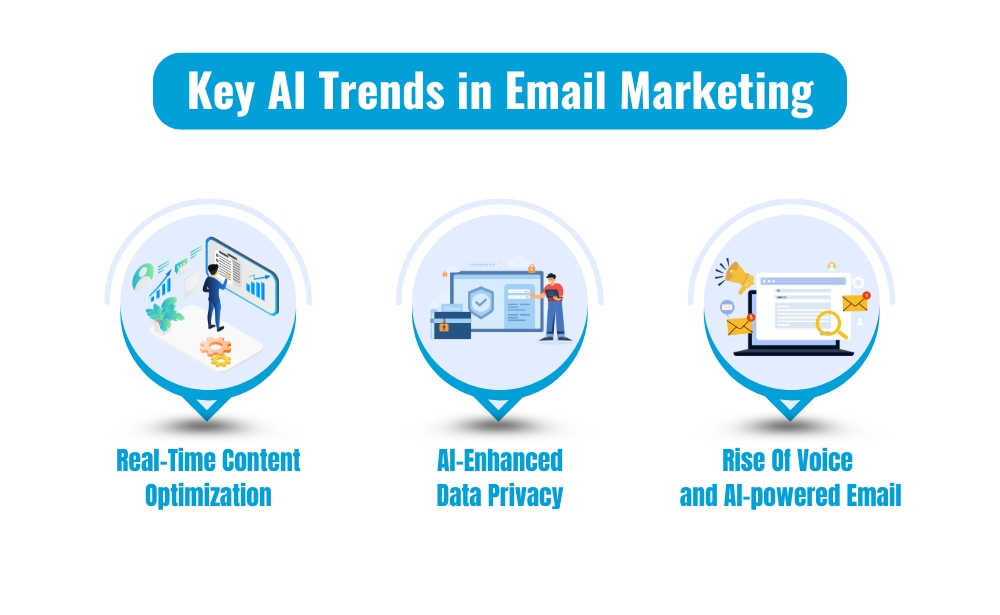
The Impact of AI on Email Marketing ROI
AI has a significant impact on the return on investment (ROI) for email marketing. By improving targeting, personalization, and automation, AI-driven campaigns can drive higher engagement rates and conversions, leading to increased revenue. Here are some key benefits:
- Increased efficiency: Automating routine tasks means marketers can focus more on strategy and creativity.
- Higher engagement rates: Personalized, relevant content leads to more opens, clicks, and conversions.
- Better customer insights: AI provides valuable data on customer behavior, helping businesses refine their strategies for even better results.
Conclusion
As AI continues to shape email marketing, businesses must prepare to integrate these technologies into their strategies. To stay ahead in 2025, invest in AI tools that can help automate and personalize your email campaigns, stay updated on AI trends and how they can be applied to improve engagement and conversions and ensure compliance with data privacy laws by leveraging AI for data protection. By embracing AI now, your business can position itself for success in the future of email marketing.
